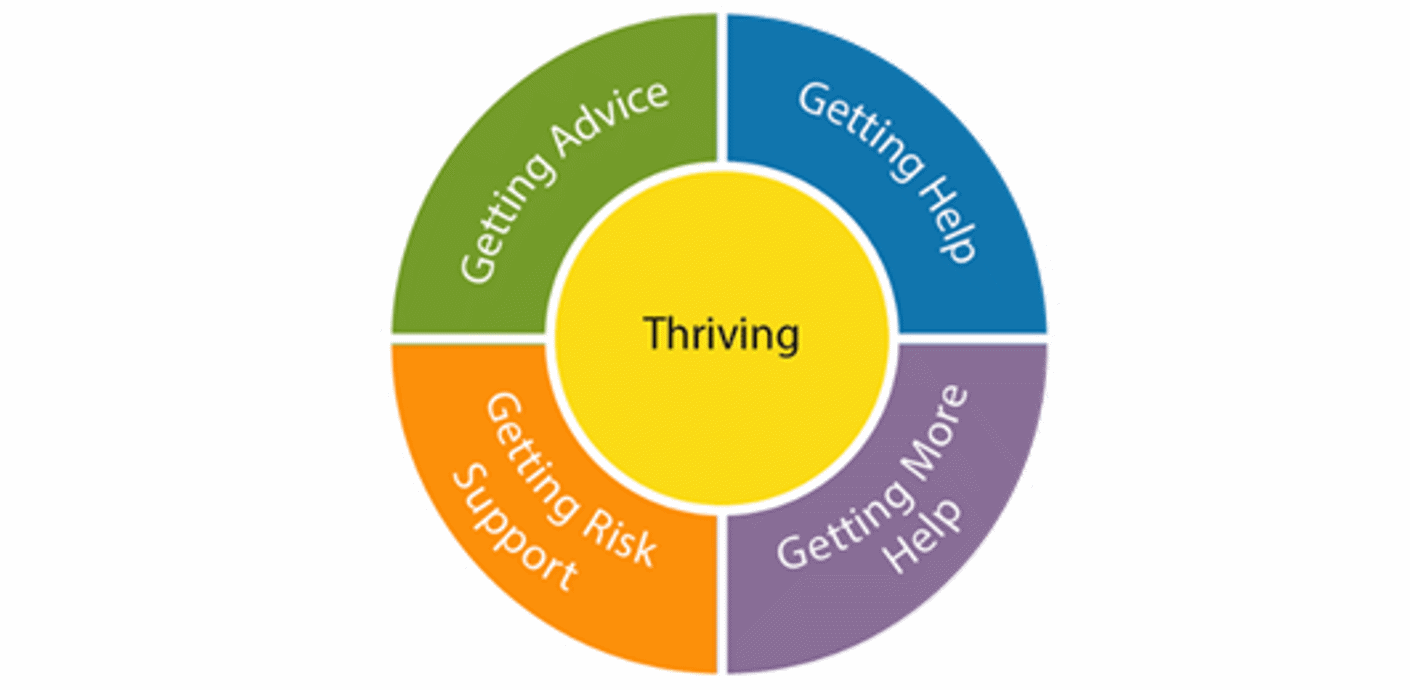West Sussex Thriving in Education
Schools and colleges play a key role in helping children and young people to thrive in terms of their mental health and emotional wellbeing.

West Sussex Thriving in Education guide
The guide references two national frameworks:
- The iThrive Framework for System Change developed by the Anna Freud National Centre for Children and Families.
- The 8 principles of a whole school and college approach GOV.UK.
West Sussex Thriving in Education Guide
Leadership and management
Confident and knowledgeable leaders are key to embedding a whole school approach to mental health and emotional wellbeing, to ensure that the whole school community can thrive.
Ethos and environment
A school’s ethos and environment should support the whole school community to feel safe, valued and included.
Curriculum, teaching, and learning
All schools have a duty to teach about mental health and emotional wellbeing. This includes cross-curricular teaching, as well as through the relationships, sex and health education (RSHE) curriculum.
Pupil voice
Placing value on pupil voice can support thriving by improving academic outcomes, as well improving levels of emotional wellbeing, belonging and self-esteem.
Identifying need and monitoring impact
To support pupils to thrive, a whole school approach to mental health and emotional wellbeing should be embedded according to the unique needs of the school community.
Staff wellbeing and staff development
Staff who feel supported in their own wellbeing and professional development are better able to support pupils to thrive.
Working with parents and carers
To help children to thrive school staff need to have good relationships with parents and carers, and work with them as partners.
Targeted support
To help schools to navigate the advice, help, and support available this section includes the Thriving in Education directory.
Links to key initiatives
Thought-Full
Information about Thought-Full, the West Sussex Mental Health Support Teams in schools service.
Emotionally Based School Avoidance
Emotionally Based School Avoidance (EBSA) guidance and process.
Relational approaches to behaviour
Links to Therapeutic Thinking and training.
Reflective Tool
This tool is designed to help and support you with your whole school approach to emotional wellbeing and mental health.
Training
Training available for school and college staff.
Working on Worries Support and Intervention (WOWSI)
Supporting children with fears and anxiety through schools.
Key mental health and emotional wellbeing guidance
-
Schools have an important role to play in supporting the mental health and wellbeing of their pupils, by developing approaches tailored to the particular needs of their pupils.
All schools are under a statutory duty to promote the welfare of their pupils. Read the full DfE guidance.
-
Schools should promote pupils’ mental health and wellbeing through whole-school approach to pupil mental health, and by developing a trusted relationship with parents/carers and families.
This involves them in the conversation about the school’s ethos, and emphasises the importance of supporting mental health and regular attendance. Read the full guidance.
-
A school’s safeguarding responsibilities include preventing the impairment of children’s mental and physical health or development.
Education staff are well placed to observe children day-to-day and identify those whose behaviour suggests that they may be experiencing a mental health problem or be at risk of developing one. Read the full KCSIE guidance.
-
OFSTED will consider how the curriculum and the provider’s wider work support learners to develop their character – including their resilience, confidence and independence – and help them know how to keep physically and mentally healthy. Read the full OFSTED guidance.
